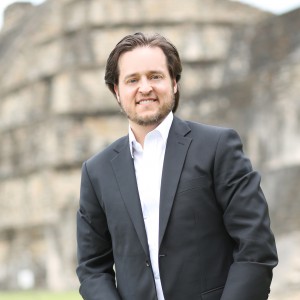Atop Utah’s Mount Olympus sits a mailbox. Rusty and battered, the mailbox contains a sheet of paper listing the names of individuals who have scaled the mountain to its peak. In June 2010, LDS musician Paul Cardall added his name to the list, exemplifying his triumph in a life full of adversity.
Cardall was born with congenital heart disease, but despite challenges, he has become a successful musician, father and friend. His music expresses his faith in the miracles of God.
“Out of every tragedy, God takes bitterness and turns it into sweetness,” Cardall said. “The olive press takes a bitter olive and makes sweet olive oil. Christ took our sins, very bitter, and turned them into something sweet. All of these thoughts — this is all at the heart of my music. That’s my thought process whenever I create.”

At birth, doctors did not believe Cardall would live more than a day. His cardiologist performed a temporary corrective surgery that allowed Cardall’s life to continue, but doctors still weren’t sure how long he would live.
Cardall’s parents initially didn’t know what to expect of their son. Despite Cardall’s lack of oxygenated blood, his father, Duane, said they never discouraged their son from being active.
“We chose to not be overly protective or restrictive,” Duane said. “We felt that with the defect that he had, the best thing for us to do would be to just let him pace himself. Our philosophy was to let him figure out what his own limits were instead of us telling him what they were.”
Cardall first played the piano when he was 8 years old. His early experience, however, did not demonstrate his true potential.
“Paul didn’t have a very good experience taking piano,” Duane said. “He lasted about six months as an 8 or 9-year-old. His piano teacher just said it wasn’t worth her time or our money to have him pursue that. So he no longer played.”
In high school, Cardall became serious about composing and performing music. With the encouragement of another talented friend, he wrote a piano concerto he described as “Russian polka meets a Nintendo game soundtrack” and performed the piece at his high school’s annual Concerto Night.
“I had never felt so nervous and so alive. I knew I wanted more of this,” Cardall wrote concerning the experience in his book entitled “Before My Heart Stops.”
He has since founded his own record label, Stone Angel Music, and recorded more than two dozen albums. Most recently, he produced the soundtrack for the film “Ephraim’s Rescue.”
“I’ve been very blessed,” Cardall said. “It seems like people have responded very well to a gift that Heavenly Father gave me.”
In 2008, Cardall’s health forced him to slow his music career. He spent months in and out of the hospital awaiting a heart transplant. During that time he found ways to remain optimistic.
“I had a great time in the hospital,” Cardall said. “All my musician friends came up. We had a night when we just jammed. We just went around the room and sang songs. I’m sitting here dying, and Peter Breinholt’s playing ‘Dancing Queen’ by ABBA. The nurses are bringing in slushies for everybody. I’m getting pumped with shots. No big deal. Carry on with the music.”
Popular cellist Steven Sharp Nelson has been a friend of Cardall since they were 16 or 17 years old. He described Cardall’s character as heroic.
“I believe in superheroes, but I don’t believe in the way that Hollywood paints them,” Nelson said. “Superheroes are everyday people who have overcome insurmountable odds and have stared adversity in the face and stared it down. Paul is one of those. He has overcome unbelievable challenges in his life and done so with a smile on his face.”
While Cardall waited for a new heart, tragedy struck his family. His younger brother, Brian, died after being tased by police during an episode of mental illness.
“I was so angry that happened, because he was healthy,” Cardall said. “Here I was on three liters of oxygen. Why was God keeping me alive? Obviously there was a vacancy in the afterlife that needed to be filled. Why not take me?”
After his brother’s death, Cardall found additional resolve to survive.
“I was determined to live,” Cardall said. “To do it I made a commitment publicly and to God that I would get my heart, and on the one-year anniversary of Brian’s death I would climb Mount Olympus.”
Three months after making that commitment, Cardall received a new heart. Recovery in the hospital was expected to take more than a month, but he went home just two weeks after surgery. Nine months later, he stood atop Mount Olympus, signed his name on the sheet of paper and left it in the rusty mailbox.
“When I sign CDs, I sign ‘Miracles happen,'” Cardall said. “God is very busy in the 21st century. He is very busy interacting and saving and healing on a very personal level. If I didn’t have a following, I probably wouldn’t have shared my story, but I have an audience. Maybe that’s why God did it, so that publicly He could exercise the priesthood. But I’m not perfect. I’m just a musician.”




